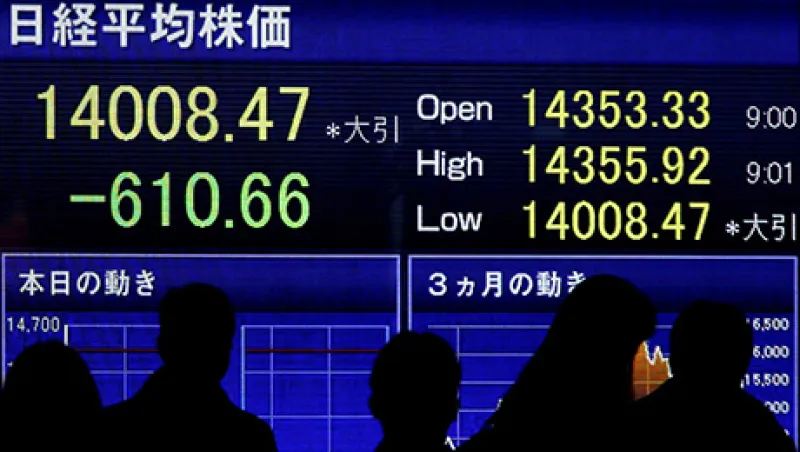
Pedestrians are silhouetted as they wait to cross a road in front of an electronic stock board displaying the closing figure of the Nikkei 225 Stock Average outside a securities firm in Tokyo, Japan, on Tuesday, Feb. 4, 2014. Japanís Topix index headed for its biggest drop in eight months after the yen surged against the dollar as investors shunned risk assets amid concern about the global economic outlook. Photographer: Kiyoshi Ota/Bloomberg
Kiyoshi Ota/Bloomberg

